
Photo: pixabay.com

Photo: pixabay.com
This page is more than six years old and was last updated in October 2019.
We've been considering writing a page about how to prepare for a no deal Brexit for months. In fact, as we're sort of experts in hiding away in secret bunkers, we've done a couple of interviews with other media outlets about our stockpiling plans, but we just weren't sure if we wanted to contribute to panic buying and "project fear".
Fast forward a few months and now we're in the final countdown to Britain's expected date to withdraw from Europe and it's looking more and more like we will be crashing out of the Union without a deal, but even so is there really going to be the level of disruption that people are talking about?
As much as we love the idea of hiding away in a bunker with a year's supply of food, it's not necessary. More to the point, most people have limited space to stockpile food and supplies. Plus there's budgetary restrictions as to how much we can realistically buy before Brexit. So, our advice is not to go crazy, buy only the items you would normally buy in order to build up a buffer of things to get you through short term shortages or inconveniences.
Not only is this good for your pocket and sanity, but it also reduces unnecessary demand on retailers. Although supermarkets like Tesco and Marks & Spencer have announced that they are increasing stocks of tinned food, a surge in buying could still do more damage than good. Last spring when the "Beast From The East" covered the UK in snow, supermarkets were left with bare shelves after panic buyers wiped out their stocks in one day. The snow only caused a couple of days of disruption, so most of these additional purchases would have been unnecessary and would have just made it harder for others to get the food they did need.
However, there are still a few weeks before the Brexit deadline, so a more sensible approach is to slowly increase your supplies over the next few weeks, don't leave it until the last moment. All you need to do is add a few extra long life items to your shopping basket each time you shop, but avoid buying things you wouldn't normally eat to save on waste should your stockpile go unused.
Don't forget you can throw an extra loaf or two of bread in the freezer, or alternatively pitta breads or wraps, which have a longer shelf life than bread anyway. You can also freeze milk, although an easier and more space efficient option is to buy a few cartons of long-life UHT milk. This can be stored at room temperature until opened, and if you've got plenty of milk, then make sure you've got plenty of cereal.
The biggest disruption is likely to be to fresh fruit and vegetables being transported from Europe, obviously this isn't something you can stockpile easily anyway. Although, you can pre-prepare and freeze some meals in bulk, which could include your daily vegetable needs. Think soups, stews and even things like curries, bolognese or chilli con carne. Obviously make sure you have enough dried pasta and rice in the cupboard to serve these meals with.
I've seen some hardcore stockpilers say they're stocking up on tinned new potatoes and green beans, but that stuff is horrible in tins and the fact is, a big bag of potatoes kept in a cool, dark place will last long enough to see you through any disruption. Vegetables like carrots will also last about a month. Apples and oranges should also last for the majority of any period of shortage.
Which Vegetables Keep The Longest?
1. Swedes - upto 6 months
2. Winter Squash - 1-3 months
3. Onions - 1-2 months
4. Apples - 1-2 months
5. Potatoes - 4-5 weeks
6. Carrots - 3-4 weeks
7. Cabbage - 3 weeks
8. Oranges - 3 weeks
9. Celery - 1 to 2 weeks
10. Leeks - 1 to 2 weeks
Make sure you've got enough dried or canned pet food to keep your furry friends going for a few weeks, and it goes without saying to make sure you have enough food for children and babies.
The Brexit backlash isn't likely to last for long, perhaps a couple of weeks at the most. So for most people, there's no real need to go over the top. Having a well stocked fridge will keep you going for the first three to four days, after that having a fully stocked freezer and cupboards will keep you going for the duration. There's really no need to fill your spare room with tins and boxes. The country isn't going to run out of food, we're just trying to minimise the impact if deliveries get screwed for a while.
A good tip is to look out for bulk-buy deals between now and the end of March. If you normally eat a lot of Crunchy Bars, then buy a load on offer. If the country goes crazy, then at least you can sit back with your favourite treats without the stress of having to battle your way around a shop while everyone else is panic buying.
One item we all take for granted that may be effected by a no deal Brexit is toilet paper. Supermarkets have already said there may be shortages. You probably don't need to stockpile loo roll, you're limited by nature as to how much you can get through in a few weeks, but you should make sure you have your usual maximum stock level ahead of Brexit. It's also quite a bulky item, so you may not have room to stock up anyway. Packs of moist toilet tissues are a good alternative, they are flushable and come in a pack that's easier to store.
One big worry when it comes to Brexit disruption is a shortage of medicines, but unfortunately there's little the public can do about this. Of course it's possible to stock up on off-the-shelf pain relief and Lemsip, but if you rely on prescription drugs there's not much you can do to stockpile in case of a shortage. We just need to hope that pharmaceutical companies, importers and the NHS stockpile or find a way to guarantee stock levels.
Advertisement ‐ Content Continues Below.
What To Buy
We're not going to give you a huge list of things to buy, because you shouldn't be buying anything you wouldn't normally buy.
Think about what you normally get through in a two to three week period and ensure you have at least the maximum amount you'd normally have in the cupboard of each of those items.
The only highly perishable item you might want to consider an alternative to is milk, buy some UHT or powdered milk.
Other items to consider fully stocking up on to at least your normal levels include:
- Pain killers
- Bread
- Loo roll
- Dried pasta
- Pasta sauces
- Rice
- Potatoes
- Frozen provisions
- Treats
How Bad Could It Get?
At the end of the day, there's only so much we can prepare for. Our fate, worryingly, is in our government's hands. It's very unlikely that things will get really bad, but just how bad could it get?
We currently import 6% of our electricity demands from Europe. In a worst case scenario this supply might be affected resulting in power cuts. This could have the knock on effect of taking out other services including mains water, which relies on power for processing plants and pumping stations.
Gas could also be at risk in a worst case scenario, we currently import 47% of the gas we use via pipelines from Europe.
If we do lose access to these services, then there's very little we can do. We each need several litres of water a day for drinking, cooking and hygiene, it would be impractical to try to stockpile this much water. If things got this bad, then the army would likely be drafted in to deliver water via tankers around the country.
If our electricity or gas does get cut, then we'd need to make sure we have plenty of warm clothes to hand, as it can still be fairly cold at the end of March. You may need some extra blankets or a sleeping bag. Even if you don't feel the cold when you're out and about, you will become cold very quickly if you are sat still at home or trying to sleep.
If there are power cuts, it won't just be home comforts like lights and heating that will be effected, it will also be services that we rely upon like telecommunications. Even if you are able to keep your phone charged, mobile base stations don't have back-up generators, so your phone will be useless and you will very quickly start feeling cutoff from the world.
For this reason, it's not a bad idea to keep a wind-up or battery-powered radio amongst your emergency supplies so that you can follow news reports, which may be broadcasting vital information in this sort of situation.
But, it can't be stressed enough that this isn't going to happen. We have to assume the lights will stay on and the water will keep running. Having said that, there's always the potential of a major incident caused by terrorism, war or even solar flares knocking out power grids and this could plunge the UK into this worst case scenario. So, it's never a bad idea to be prepared, in fact being prepared for a major incident is actually much more sensible than the few days of disruption that Brexit might cause.
Basic essentials that you should think about keeping in include a small gas or spirit stove and fuel, cash in small denominations, a first aid kit, basic tools, wet wipes, hand sanitiser, toiletries and sanitary products, as well as a small fuel can in order to get patrol or diesel should you need to.
In case of power cuts, it's a good idea to have a stock of torches and head torches, as well as candles, tea lights and matches. Don't forget, you'll need to keep these devices going so make sure you have plenty of spare batteries, fully charged power banks and mobile phone chargers that work in your car.
If a major incident knocked out your gas or electricity at a cold time of year, it's advised to gather in one room, hang blankets over the windows, cover the floor with rugs and build a den under a table, which you can huddle together inside to keep warm. If you have gas central heating, get an electric heater as backup, or ensure you have an alternative heat source, like an LPG or paraffin heater.
If you want to be fully prepared, then it's recommended to take a first aid course and ensure you have everything you need in your first aid kit to practice these skills. A stash of pain killers is also a good thing to keep amongst your emergency supplies. It might also be a good idea to pre-arrange meeting places with family and friends in case you are forced to evacuate your local area and are unable to contact them.
The truth is, it's always a good idea to have a small stash of emergency non-perishable food that can be prepared quickly, requires little water or can be eaten without preparation just in case. It can come in handy if there is snow or a sustained power outage. It might even save you having to make a trip to the supermarket if you live alone and were stuck in bed with the flu.
Below is a list of a few essential survival items that we recommend to start building your emergency survival kit with...
Jetboil Zip Compact Gas Cooker
Olight S1R Baton II
Solar Emergency Home Lighting Pack
Wind Up AM/FM Radio
Compact First Aid Kit
Learn With Higgypop
Hosted by Paralearning in association with Higgypop, these courses on ghost hunting, paranormal investigations, and occult practices draw on the experience of our team of paranormal writers.
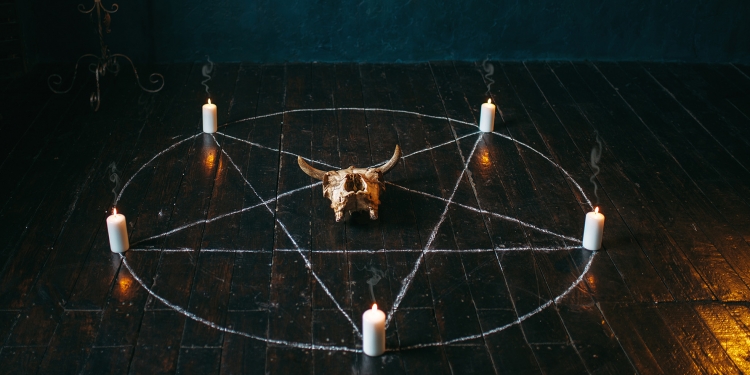
Diploma In Modern Demonology For Paranormal Investigators
This course gives you practical and useful knowledge of ghost hunting and paranormal research, which is invaluable when conducting your own paranormal investigations or as part of a group event.
View Course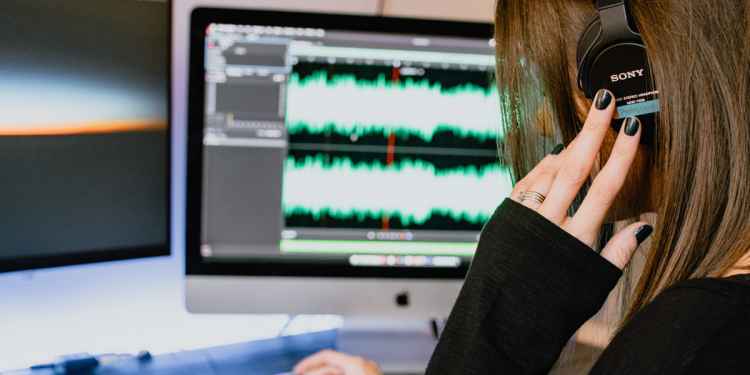
Diploma In Capturing & Analyzing Electronic Voice Phenomenon
This course gives you practical and useful knowledge of ghost hunting and paranormal research, which is invaluable when conducting your own paranormal investigations or as part of a group event.
View CourseMore Like This
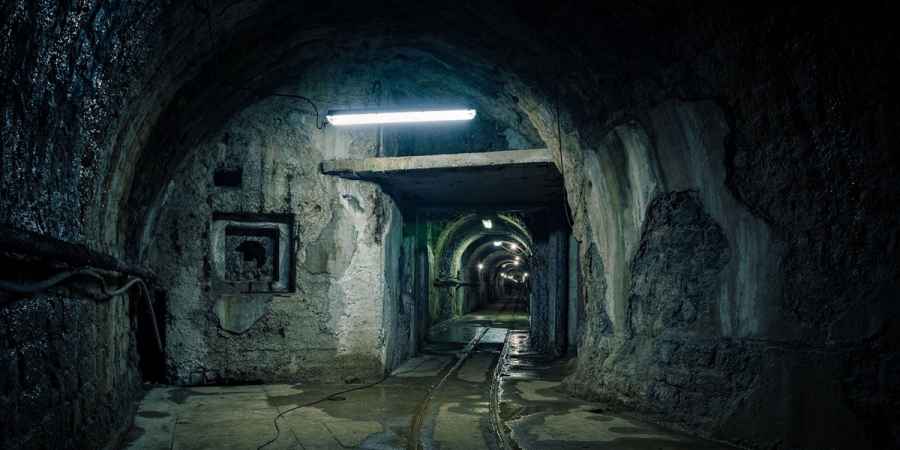
UndergroundMay 31, 2024
Dulce Base: The Secret Bunker That Doesn't Exist
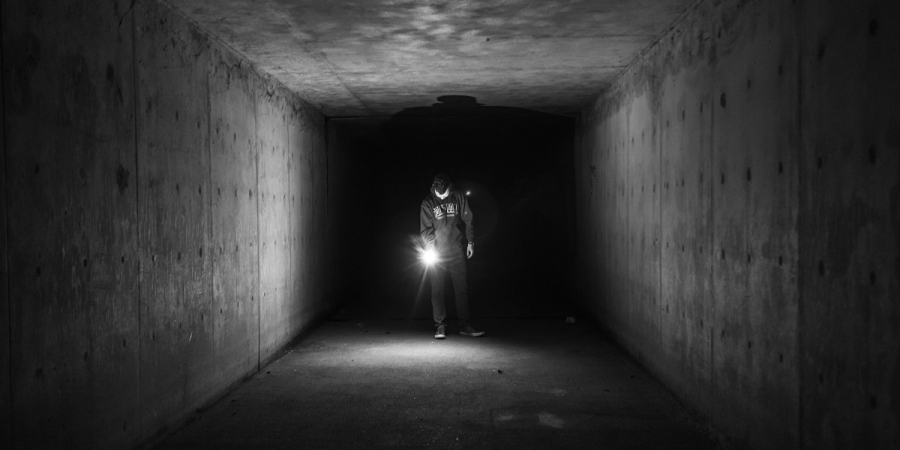
UndergroundApril 09, 2023
Supernatural Subterranea: Paranormal Tales From Dark & Forgotten Places
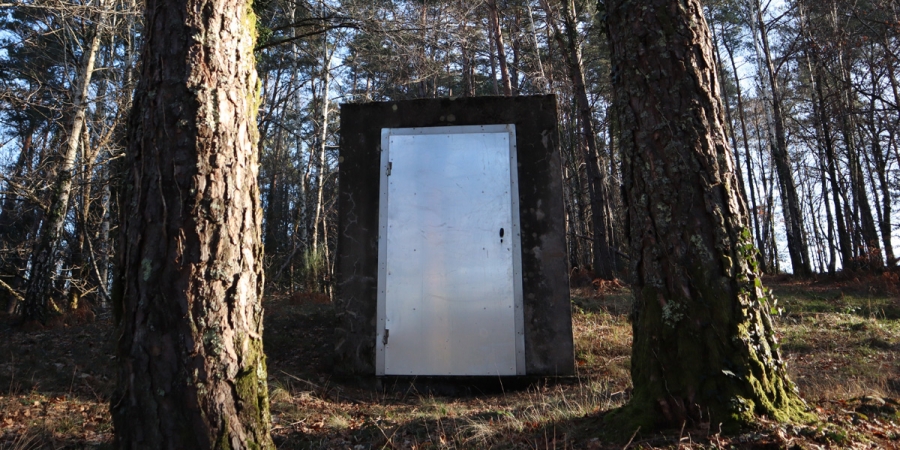
UndergroundApril 04, 2023
Uncovering Switzerland's Underground Fallout Bunkers
 See More on Audible
See More on Audible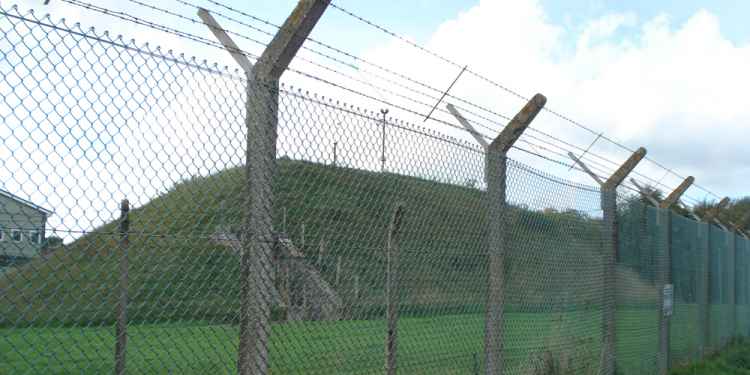

Comments
Want To Join The Conversation?
Sign in or create an account to leave a comment.
Sign In
Create Account
Account Settings
Be the first to comment.